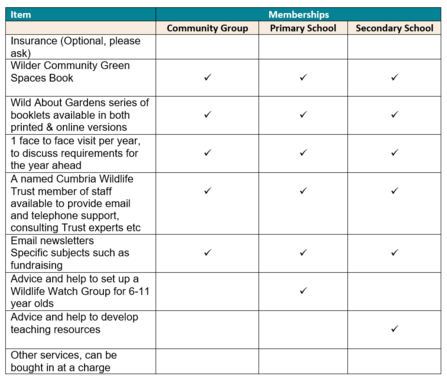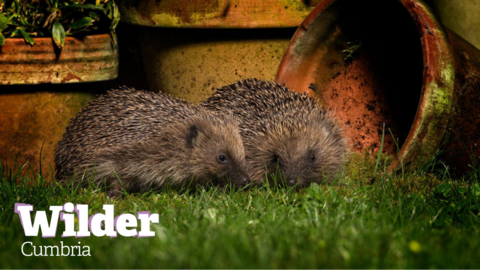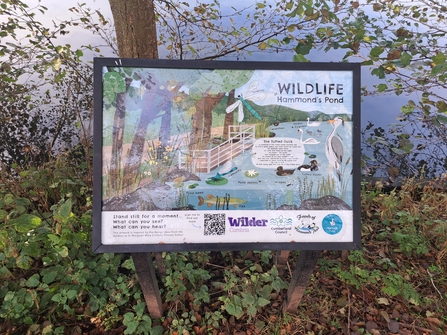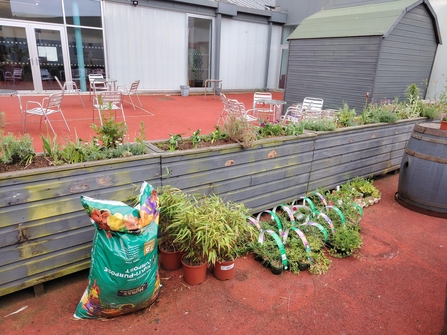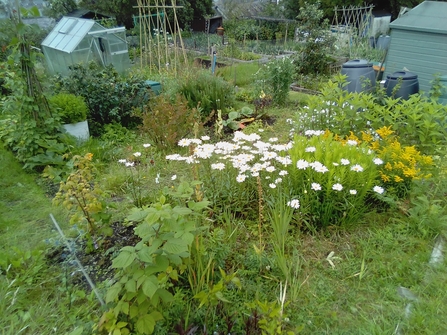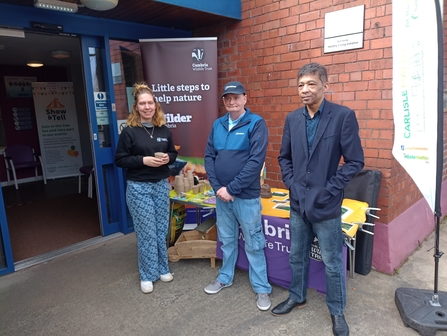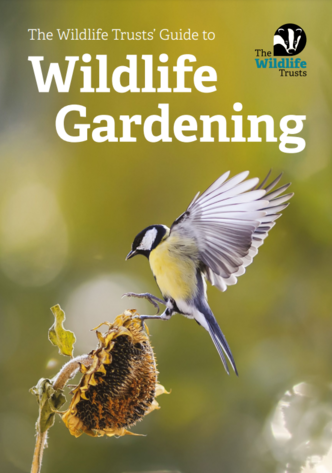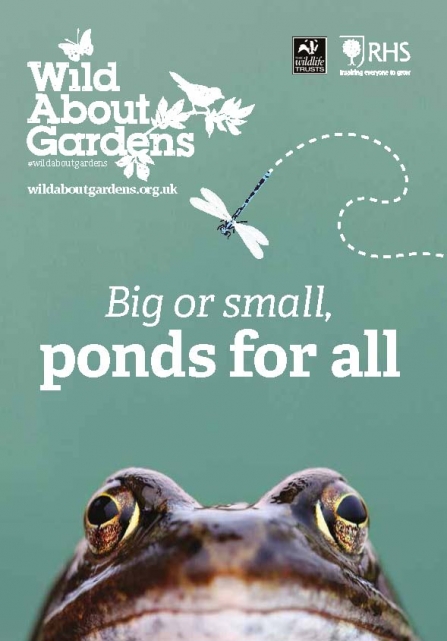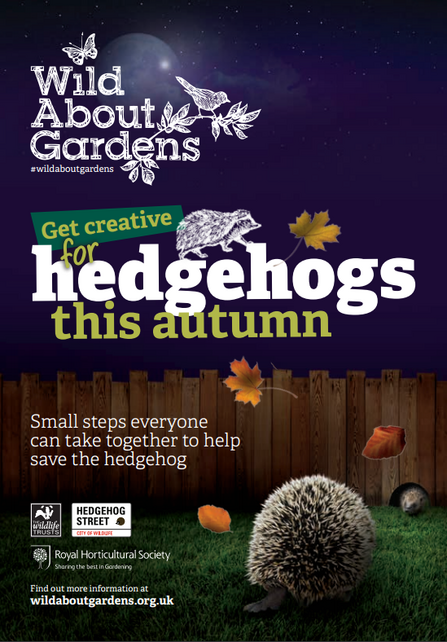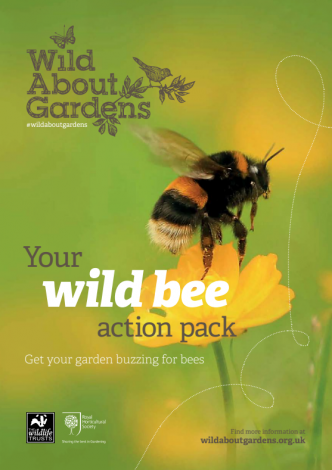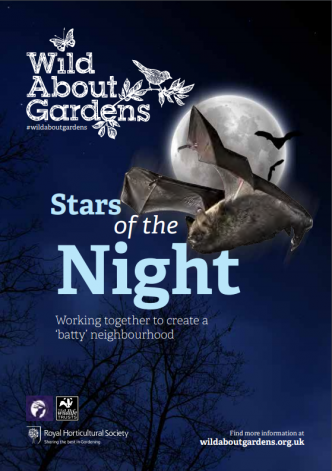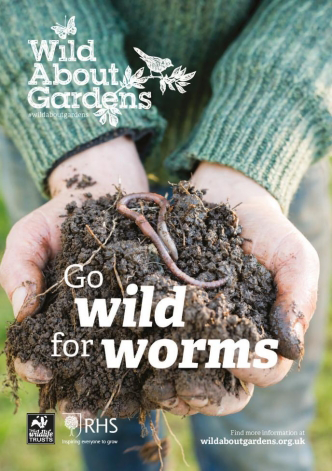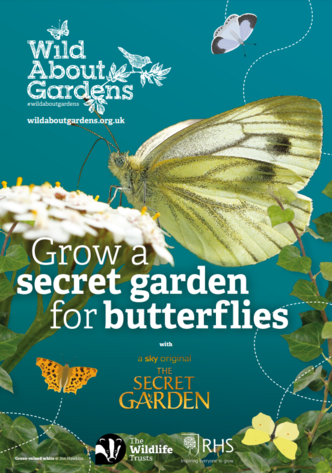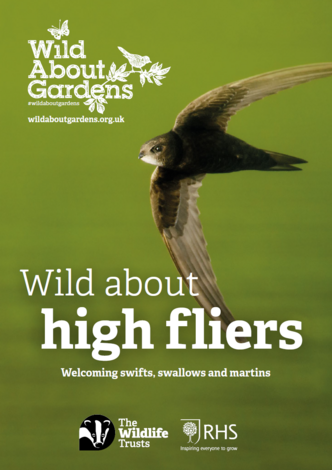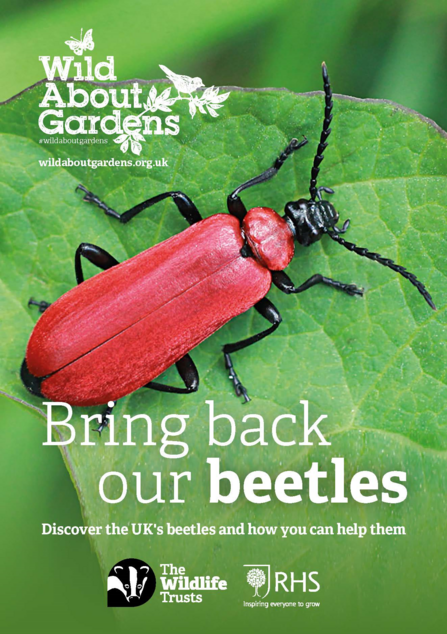Email Community Team
Get support from us
Our Community Team is driving forward the movement to create a #WilderCumbria by empowering people and communities to take action in their local area. We provide advice and connections to help you care for nature in your community – working with you to create a #WilderCumbria.
How we're helping people to help nature
Ambleside Action for the Future
A network of residents in Ambleside is already working together to improve the local area and find ways to tackle climate change.
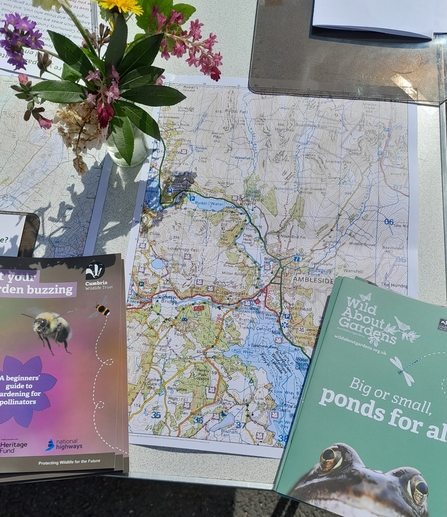
Recently, they asked us to help them create a survey and manage a consultation to find out what local people thought about green spaces close to Ambleside and how they should be developed.
Over several sessions, we’ve helped them to gather over 100 responses from local people and school children, which will shape their action for nature in the area. Read full case study
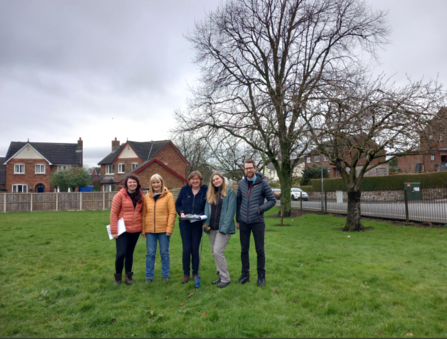
Lucy Graham (Cumberland Council), Pop Baldwin and Lisa Bennington (Brampton Green and Wild), Charlotte Rankin (Cumbria Wildlife Trust), Lee Lowis (Cumberland Council Parks and Green Spaces) on a site visit at Irthing Park.
Brampton Green and Wild
Brampton Green and Wild is a Facebook Group with 600 members, started by Pop Baldwin. Fed up of seeing consumerism so widespread, Pop wondered if she could start a new group of environmental “influencing”. The admins see gardens as stepping stones for wildlife through towns where the wildlife corridors are not so joined up. Read full case study
Cold Springs, Penrith
We’re working in partnership with the local community, Eden River’s Trust and Penrith Town Council to develop Cold Springs Community Nature Reserve and to link up green spaces through the Access to Eden project. Conservation work has started at Cold Springs, land gifted to the Trust by Ann and Brian Clark.
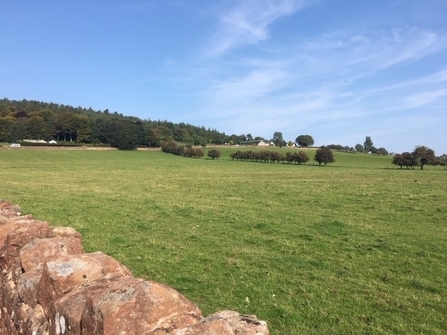
We have a great opportunity to create more space for wildlife at Cold Springs in the future © Cumbria Wildlife Trust
The plan is to create a steering group for the nature reserve made up of local residents and young people, and supported by Cumbria Wildlife Trust staff.
Local residents turned out in force for a consultation and came up with some brilliant suggestions to ensure Cold Springs becomes a great space for nature that is linked through green corridors to other wild places in Penrith.
Hammonds Pond information boards
Together with local young people of Carlisle, volunteers at The Friends of Hammonds Pond Carlisle installed new information boards about local history and wildlife. Read full case study
Harry Bee community gardening group
A case study on how Harry Bee community gardening group refurbished the outdoor space of a community centre in Carlisle, for both people and wildlife to enjoy. Read full case study
Jamie's wildlife gardening
Jamie is always looking for ways to help nature, and enjoys sharing his allotment and garden with wildlife. He has been working to improve biodiversity by creating habitats, food and shelter for creatures of all sizes. Read full case study
Melbourne View community garden
Melbourne View residents took action for nature in their shared garden. Read full case study
Nextdoor Nature project, Carlisle
This planter stands on the corner of Edward Street in Carlisle and was neglected – no good for wildlife and an eyesore for people. Now, the council, local residents, the local school and Cumbria Wildlife Trust are working together to rescue it as part of the Nextdoor Nature project.
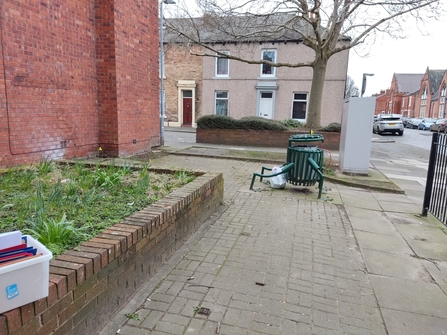
This planter will soon be a pocket of green in an urban environment, bringing wildlife back and improving the local area. Creating a new habitat within the city, where lots of people will see and benefit from the work, is great and a way of influencing others to do more for nature. Read the full case study
Penrith Swift Group
In July 2022, Sue Rowlands approached us to see how we could work together to support swifts and raise awareness about the birds in Penrith. Our head of community development, Simon, suggested teaming up with the Penrith Local Support Group to provide a venue and ready-made support network.
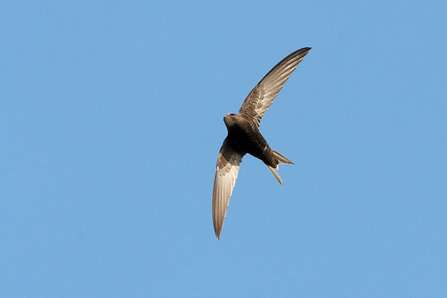
© Stefan Johansson
This allowed Sue to link up with Tanya Hoare, a well-known local swift enthusiast and member of the Sedbergh Swift Community Group, to share knowledge and expertise.
Sue has since worked with volunteers to build swift boxes and advertise and sell them locally. She’s also helped others to safely put the boxes up, and is organising this summer’s swift surveys. Read full case study.
Sandgate School
Children learnt new outdoor skills and grew in confidence with Danni’s Forest School Adventures. Read full case study.
St Andrews church grounds are made more wildlife friendly
A case study on how a community group created a wildlife garden in a church's grounds. Read full case study
Meet our Community Team
Marian Jones – Head of Community
Marian joined Cumbria Wildlife Trust in May 2024 with 20 years’ experience of leading learning and engagement programmes for museums and heritage sites. She has collaborated with communities and partners on a diverse range of access, heritage and nature projects. During this time, Marian has found that working at a grass-roots level with communities to take action on issues that they are passionate about is both massively satisfying and key to long term success. As well as leading the Community Team, Marian is the first point of contact for communities in the Westmorland and Furness area.
Jamie Normington – Learning and Education Manager
Jamie has worked for Cumbria Wildlife Trust for over 12 years in a range of People & Wildlife roles including membership, volunteering, training and education, building our links with schools, colleges, groups and individuals across the county and supporting projects from Barrow’s Wildside and Meadowlife to Dunescapes. He’s a qualified primary and adult teacher; a Forest School tutor; and leads our apprenticeship and university placement schemes, to help Cumbria Wildlife Trust provide lifelong learning opportunities for all.
Rosie de Mello - West Coast Community Officer
The West Coast Community Officer role is about engaging with children and young people to cultivate an interest in them to take action for nature, in turn creating a Wilder Cumbria. Rosie wants to encourage everyone to notice nature around them, and to see how we can ensure it's still here for future generations. Alongside this, she hopes that we can increase the diversity and range of our wild places in west Cumbria. As a Forest School Leader she's aware of the healing power of connecting to nature, and hopes to improve young people’s mental & physical health, giving them more resilience to cope with the emotional roller coaster of teenage-hood. She enjoys enthusing people to get outdoors, enjoy our natural environment, and help to conserve it for all.
Ruth Alcroft – Volunteering Coordinator
Ruth is an experienced primary school teacher who has spent a decade working with children and adults in the outdoors, but she now works with staff and teams across Cumbria Wildlife Trust to recruit, train and support our work with volunteers. Ruth works with a team of volunteer administrators to plan and implement volunteering policy, keep documents and systems up to date and works with outside partners where volunteering is a significant part of delivering our aims and objectives.
Lizzy Benn – Cumberland Community Development Officer
Lizzy is a conservationist that enjoys finding opportunities for everyone to connect to nature, the outdoors and their communities through sustained engagement. She hopes to develop meaningful connections that benefit people and wildlife alike. She has had a number of roles engaging communities and volunteers across Cumbria, from the valleys of the Lake District to the tops of the Pennine Fells. Lizzy is keen to have conversations with new communities in the Cumberland area and see where she can help them move forward in their journey to take action for nature.
Ami Stidolph – Cold Springs Engagement Officer
Ami is supporting the development of the brand new reserve of Cold Springs in Penrith, from the practical growth of the site into a space for nature, to engaging people to create a place for the community. This includes engagement events with many groups including planting, access development and surveying of the wildlife that will make Cold Springs their new home.
Freya – Outdoor Learning Officer
Freya is working with schools and youth organisations in Carlisle to encourage young people to get out into nature and use their local green spaces, whether this is on school grounds or other local areas. Her project will involve working with 10-18 year olds as this age range has been shown to have the lowest rate of connection to nature. Schools could be involved with creating wildlife areas, gardening, citizen science, mental health and wellbeing activities, food growing, practical volunteering, bushcraft or anything else they can think of to get outside! Freya is a Forest school leader and loves getting people out into nature in whatever form that takes and encouraging the next generation to love and care for nature.
What you can expect from us
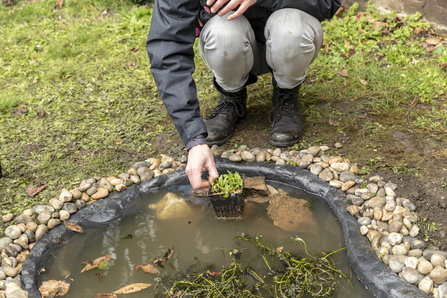
© Penny Dixie
The team supports community groups to take action for Cumbria's wildlife & wild places
Discover how you can help Cumbria's wildlife through simple acts you can take at home and in your local area. Browse our list of action pages that give you simple instructions on 'How to' make a difference for wildilfe. You'll find all sorts of inspiring and easy ways to help wildlife at home, including 'How to create a hedgehog hole' to 'How to build a pond'.
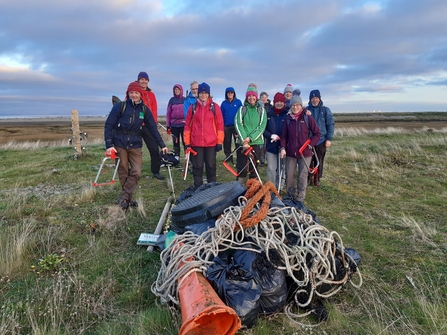
Our Community Team works with community groups to make Cumbria wilder
Our Community Team wants to enable individuals and groups to play their part in creating a #Wilder Cumbria. We do this by enabling people to take action, by creating opportunities to volunteer, and helping people learn about nature and wildlife.
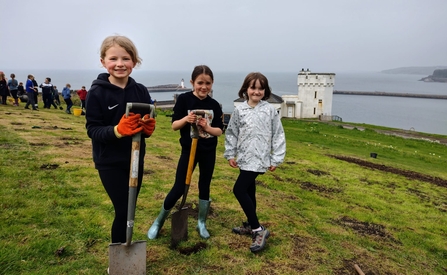
Our Community Team works with schools and other groups to help people learn about Cumbria's wildlife & wild places
We're an experienced team of educators, currently developing our specific programme for 2023-24. In the meantime, please contact us if you've an educational enquiry. In particular, we're looking at training for teachers and community leaders as part of our offer.
Our Community Team helps volunteers to get involved
If you'd like to volunteer, please click here to view more volunteering information.
Get in touch
Contact us
Tell us what support you need in your community, or get in touch to tell us what you're already doing – we'd love to hear about it!
Contact our Community Team by emailing community@cumbriawildlifetrust.org.uk
Join the conversation using #WilderCumbria
Resources
Visit the Nextdoor Nature Hub website - a one-stop shop for practical actions that you and the rest of your community can take together to make the most of spaces in your neighbourhood.
Download our free leaflets (PDFs) below, designed to help you make a difference for nature near you.
Download your free wildlife gardening guide
Wildlife-friendly gardening is about making a haven for you, as well as for wildlife. By gardening sympathetically for wildlife, you’ll be rewarded by a truly natural outdoor space, where you can get in touch with the plants, animals and birds that make their home there.
Download your free guide to creating a pond
Adding a pond is one of the best things you can do for wildlife in your garden! Even a small pond can be home to an interesting range of wildlife, including damsel and dragonflies, frogs and newts. It could also become a feeding ground for birds, hedgehogs and bats – the best natural garden pest controllers.
Download your free guide to how to help hedgehogs
Small, round, brown and famously covered in spines, the hedgehog is one of the most familiar of Britain's wild mammals.
Download your free guide to how to help bees
It’s no secret that many pollinators are facing threats. Insensitive land use, a reduction in plant species diversity and the use of insecticides have all been linked to declining bee numbers. This is bad news for us and for them. But you can help.
Download your free guide to how to help bats
Bats are stars of the night, seen swooping through the night sky in the pursuit of their prey. Little understood, just what is the truth about these enigmatic mammals?
Download your free guide to helping earthworms
Let's go wild about worms! These wriggly fellows are well known to gardeners all over. At first glance they might not seem particularly special, but they’re essential for our soils and wildlife.
Download your free guide to bring your lawn to life
Our lawns are so much more than just a patch of grass. They’re a bridge between our living space and the wild world that surrounds it. A central part of many gardens. A place to play and relax, whilst still making room for wildlife.
Lawns are sometimes thought of as green deserts, but with the right approach they can become an oasis for many of our natural neighbours.
Download your free guide to growing a secret garden for butterflies
Butterflies and moths aren’t doing too well at the moment, with many species declining in recent years. But, the good news is that we can help butterflies and moths through gardening!
Download your free guide to helping swifts, swallows & martins
No stranger to a long-haul flight, swifts, swallows and martins travel all the way from Africa to spend each summer in the UK. There are lots of simple things that we can do at home to support these special birds.
Download your free guide to helping beetles
Beetles (in the order Coleoptera) make up more than a third of all known species on earth – that's around 400,000 worldwide. In the UK alone there are more than 4,000 species, and you can find them in almost every habitat, all year-round! Although a handful may eat your plants, beetles are a vital part of a healthy garden.
Join Cumbria Wildlife Trust as a community group or school, from just £78 for a year's membership
Your group or school can join a growing movement for Cumbria's wildlife & people - led by the only voluntary organisation dedicated solely to the conservation of the wildlife & wild places of Cumbria - and work in partnership with Cumbria Wildlife Trust to create a Wilder Cumbria.
How to join
You'll find details of what you can expect from your membership outlined below (or download them (PDF) here). To join Cumbria Wildlife Trust, simply complete this short form and email it to community@cumbriawildlifetrust.org.uk or post it to: Membership team, Cumbria Wildlife Trust, Plumgarths, Crook Road, Kendal, Cumbria, LA8 8LX
Membership benefits for a community group or school
By joining us, you're helping to take care of the 9500 acres of land we safeguard for wildlife, including our 41 nature reserves. Your free welcome pack includes:
- The opportunity to take out Insurance for your group
- At least 14 hours of support per annum, including one face to face visit
- Wilder Community Green Spaces Book
- Digital or printed guides to taking action for nature
- Advice and connection to online resources
- Becoming part of a network of similar groups committed to taking action for nature
- Ongoing support and encouragement to keep taking action for nature
